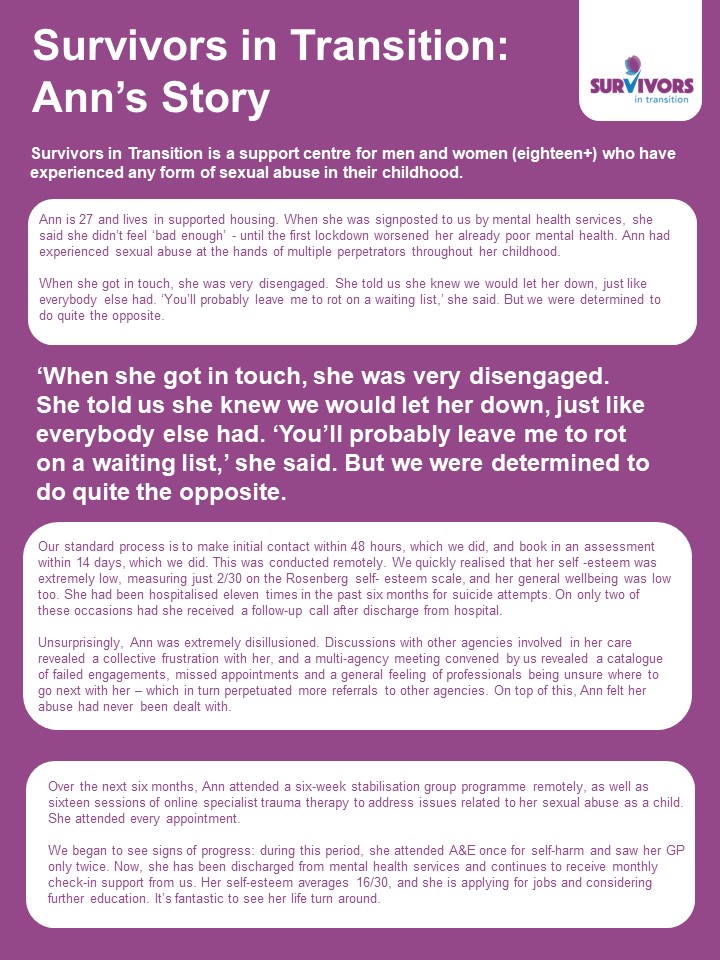Survivors in Transition supports men and women (eighteen+) who have experienced who have experienced any form of sexual abuse in their childhood.
You can read the image below, or scroll to see the full text version.

To submit your own case studies, email [email protected]. We’d love to help spread the word about your organisation.
Full text version:
Ann is 27 and lives in supported housing. When she was signposted to us by mental health services, she said she didn’t feel ‘bad enough’ – until the first lockdown worsened her already poor mental health. Ann had experienced sexual abuse at the hands of multiple perpetrators throughout her childhood.
When she got in touch, she was very disengaged. She told us she knew we would let her down, just like everybody else had. ‘You’ll probably leave me to rot on a waiting list,’ she said. But we were determined to do quite the opposite.
Our standard process is to make initial contact within 48 hours, which we did, and book in an assessment within 14 days, which we did. This was conducted remotely. We quickly realised that her self -esteem was extremely low, measuring just 2/30 on the Rosenberg self- esteem scale, and her general wellbeing was low too. She had been hospitalised eleven times in the past six months for suicide attempts.
On only two of these occasions had she received a follow-up call after discharge from hospital.
Unsurprisingly, Ann was extremely disillusioned. Discussions with other agencies involved in her care revealed a collective frustration with her, and a multi-agency meeting convened by us revealed a catalogue of failed engagements, missed appointments and a general feeling of professionals being unsure where to go next with her – which in turn perpetuated more referrals to other agencies. On top of this, Ann felt her abuse had never been dealt with.
Over the next six months, Ann attended a six-week stabilisation group programme remotely, as well as sixteen sessions of online specialist trauma therapy to address issues related to her sexual abuse as a child. She attended every appointment.
We began to see signs of progress: during this period, she attended A&E once for self-harm and saw her GP only twice. Now, she has been discharged from mental health services and continues to receive monthly check-in support from us. Her self-esteem averages 16/30, and she is applying for jobs and considering further education. It’s fantastic to see her life turn around.
